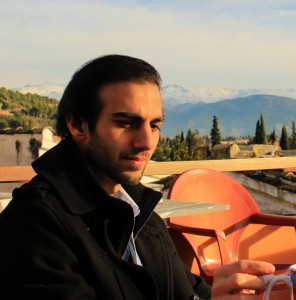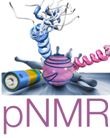 Sheryar is currently a PhD Scholar at the Physics Department of Stockholm University, Sweden. He graduated with an Engineering degree from The University of Toyama, Japan, thanks to the Monbukagakusho Scholarship program, after a one year intensive Japanese language course at Osaka University. His final year thesis related to Chemical Kinetics and Molecular Dynamic simulations. He proceeded to obtain a double Masters degree in Chemistry (University of Groningen, Netherlands) and a European Master in Theoretical Chemistry and Computational Modelling (EMTCCM) under the Erasmus-Mundus Scholarship. His master thesis, titled “Theoretical Investigation of Novel Materials for Solar Cell Applications”, was conducted over 5 months at the Université Paul Sabatier, Toulouse, France, focusing on density functional calculations. His interests lie in various quantum and classical treatments practiced in theoretical chemical physics.
Sheryar is currently a PhD Scholar at the Physics Department of Stockholm University, Sweden. He graduated with an Engineering degree from The University of Toyama, Japan, thanks to the Monbukagakusho Scholarship program, after a one year intensive Japanese language course at Osaka University. His final year thesis related to Chemical Kinetics and Molecular Dynamic simulations. He proceeded to obtain a double Masters degree in Chemistry (University of Groningen, Netherlands) and a European Master in Theoretical Chemistry and Computational Modelling (EMTCCM) under the Erasmus-Mundus Scholarship. His master thesis, titled “Theoretical Investigation of Novel Materials for Solar Cell Applications”, was conducted over 5 months at the Université Paul Sabatier, Toulouse, France, focusing on density functional calculations. His interests lie in various quantum and classical treatments practiced in theoretical chemical physics.
| Home Country | Pakistan |
| Project Topic | First principles simulations of NMR relaxation derived from Quantum Chemical (QC) calculations of Zero-Field Splitting (ZFS) sampled over ab initio molecular dynamics (MD) simulations |
| ProjectDescription | Traditionally the Solomon-Bloembergen-Morgan equations have been utilized to describe relaxation times in terms, primarily of the Zeeman interaction. However, in complexes such as Gadolinium with spins higher than 1 (in this case S=7/2) other interactions such as the Zero Field Splitting begin to play a significant role. This research delves into a theoretical understanding of the NMR relaxation mechanism, focusing on the role that zero field splitting and hyperfine interactions play in the process of clinically relevant complexes. The computational tools used incorporate the Density Functional theory, MC-SCF and Ab-Initio Molecular Dynamic techniques for all-electron relativistic models. |
| Project Home | Stockholm University |
| Supervisor | Jozef Kowalewski and Michael Odelius |
| Starting Date | September 2013 |
| Publications | S. Khan, A. Kubica-Misztal, D. Kruk, J. Kowalewski, and M. Odelius. Systematic theoretical investigation of the zero-field splitting in Gd(III) complexes: Wave function and density functional approaches. J. Chem. Phys., 142:034304, 2015 |
| Meetings | pNMR Training School, February 2014, Mariapfarr, Austria Title: Electronic and Nuclear Relaxation, and Electronic Structure Calculation Role: participant pNMR Mid-Term Review Meeting, September 2014, Cambridge, UK Role: participant pNMR Applied Training, June 2015, Berlin, Germany Title: Introduction to practical pNMR shift calculations Role: participant pNMR Complementary Skills Training, July 2015, Prague, CZ Title: Personal Skills, conference presentation and Communication Role: participant pNMR Workshop 3, July 2015, Prague, CZ Title: pNMR : from rags to riches, Challenges and potentials of NMR on paramagnetic molecules, Role: speaker pNMR Applied Training, May 2016, Florence, IT Title: Expression and purification of metalloproteins for structural studies and Paramagnetic restraints in hybrid methods for protein structural analysis, Role: participant |
| Secondments | July/august 2014, Bratislava, Slovakia; Jan/March 2016 CIRMMP, Florence, Italy; April/June 2016 GIOTTO, Florence, Italy |
